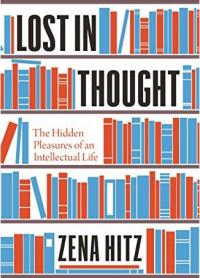
A book written to explain the meaning of study and the exercise of reason as a human good.
In the prologue, the author describes her life journey, in which the question of the meaning of study is of great importance. Zena Hitz was born in a family of Jewish intellectuals in the U.S.A. Her interest in books and study dates back to her childhood, in her family environment it was something normal. Her studies at St. Johns College introduced her to the great questions of humanity, through classical authors. This leads her to study Aristotle in an academic way. It is precisely this environment that causes her to lose her initial enthusiasm for study. She realizes that professors are not so much looking for the truth, but many times for prestige, money, good social position to give classes and write books. This leads her to a long process of rethinking her academic activity and her life in general. She approaches the Catholic Church, receives Baptism and gets involved in volunteer activities, among other things. In the end he returns to academic life, but he tries to make his activity a deepening of the truth and a help to his students.
The other parts of the book explain in essay form the importance of the study itself. With examples from literature (Clouds, by Aristophanes, Confessions of St. Augustine, Neapolitan novels by Elena Ferrante) and prominent people (Einstein, Dorothy Day, Malcom X)
The book is a strong invitation to flee from superficiality and have a serious life, which through the exercise of reason, transforms the life of a person and allows him to lead a valuable life. His argumentation gives clues to see how to improve the study by university professors and improve academic institutions, but also helps to live a more contemplative life.
A highly recommended book, especially for educators.
Stanisław Urmański. Mayo 2023
